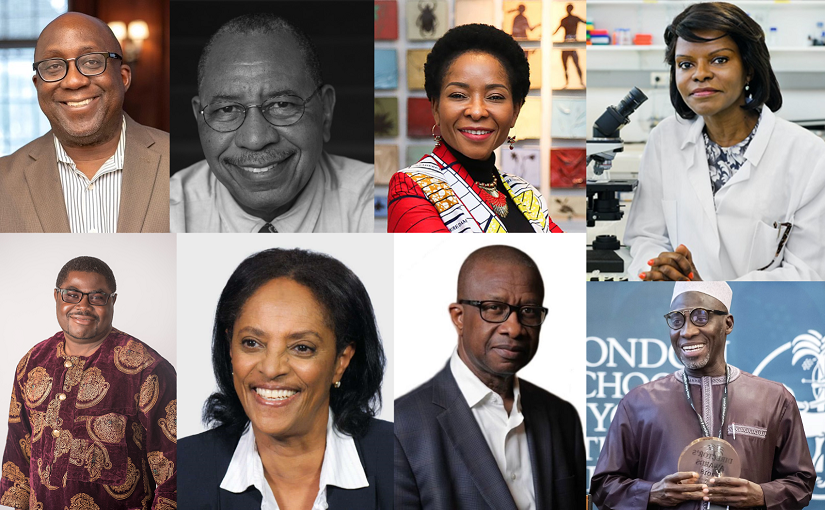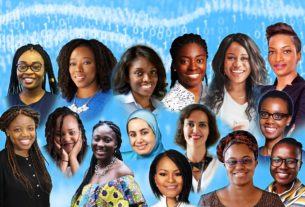The World Academy of Science recently published its list of new Fellows elected in 2022. The honor, which TWAS refers to as the “apex of scientific achievement,” is bestowed on scientists who have made significant contributions to the advancement of science in the developing world. The 10 African scientists are among the 53 new members elected this year. They come from Cameroon (2), Kenya (1), Mali (1), South Africa (1), Republic of Congo (1), Ethiopia (1), Senegal (1), Gambia (1) and Nigeria (1).
Abdon Atangana, Professor
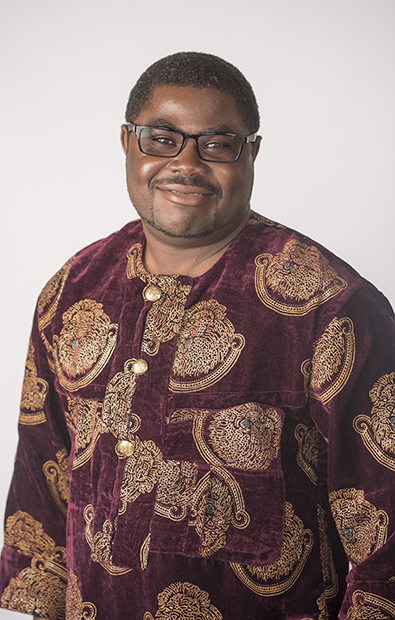
Current nationality : Cameroon
Current Residence: South Africa
Affiliation/Institution : University of Free State (South Africa)
Abdon Atangana is Full Professor at the Institute for Groundwater Studies, University of the Free State, Bloemfontein, South Africa. His research interests are, but not limited to, fractional calculus and applications, numerical and analytical methods, and modeling. He is the author of more than 270 research papers and five books in top tier journals of applied mathematics and groundwater modeling. He is the founder of numerous mathematical operators, for example fractional differential and integral operators with singular and nonlocal kernels (Atangana-Baleanu derivatives and integral), fractal-fractional calculus, piecewise calculus, and some numerical methods. He serves as Editor in top tier journals in various fields of study. He has been invited as plenary, keynote speaker in more than 30 international conferences. He has graduated more than 21 masters and 10 PhD students and has supervised several postdoctoral researchers from different countries. He was elected Highly Cited Mathematician in 2019, Highly Cited Mathematician with Crossfield Impact in 2020, and Highly Cited Mathematician in 2021. He is a recipient of the Obada Prize 2020, the TWAS-Hamdan Award 2020 and many others.
Oumar Gaye, Professor of parasitology, Director of Marcad Consortium
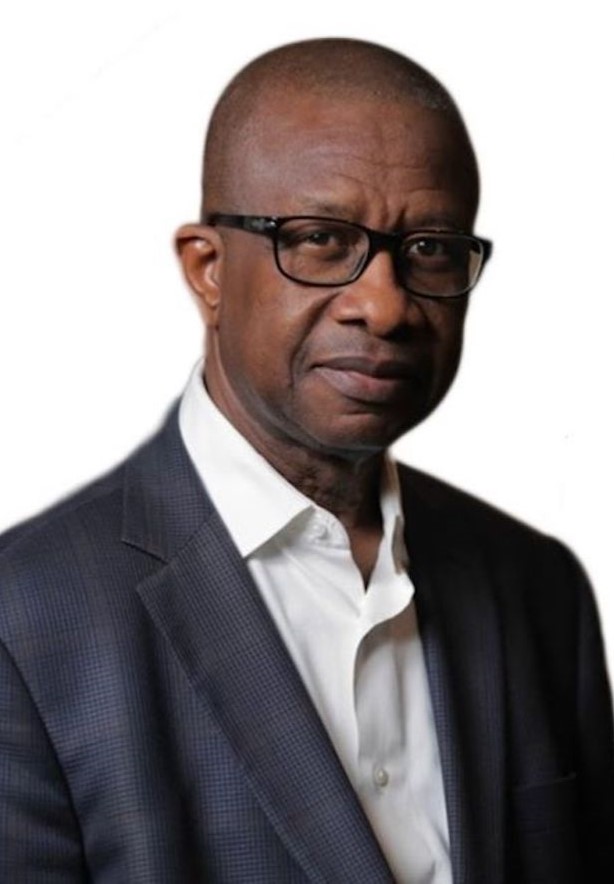
Current nationality : Senegal
Current Residence : Senegal
Affiliation/Institution : University Cheikh Anta Diop de Dakar
Oumar Gaye is Professor of Parasitology, Faculty of Medicine of Cheikh Anta Diop University of Dakar; Director of the Malaria Research and Capacity Development Programme in West and Central Africa; Coordinator of the Network for Malaria Surveillance in West and Central Africa; a member of the Senegalese Academy of Sciences and Techniques, and a member of Malaria Consortium’s Board of Trustees. He was: Head of the Department of Parasitology; Coordinator of the PhD training in human biology and pathology; Scientific Adviser on Malaria in WHO Regional Office for Africa, and a member of WHO headquaters’ Expert Panel on Malaria Management; Malaria Technical Advisor at the Gates Foundation; and Technical Advisor at the Ministry of Health, Senegal, for many years. Gaye has coordinated research on malaria and several parasitic diseases in Africa, as the seasonal malaria chemoprevention, and the use of antimalarial and diagnostics tests at community level. He is a founding member of the West Africa Roll Back Malaria Network. He received the Senegal Presidential Award for Science in 2012, and International Distinguished Fellow by American Society of Tropical Medicine and Hygiene in 2021.
Jaye Assan, Professor of Global Health Education and Researcher Leadership at the London School of Hygiene and Tropical Medicine (LSHTM), UK,

Current nationality : Gambia
Current residence : Gambia
Affiliation/Institution : Medical Research Council (MRC) The Gambia Unit at London School of Hygiene and Tropical Medicine (LSHTM)
Jaye (DVM, PhD) is a Professor of Global Health Education and Researcher Leadership at the London School of Hygiene and Tropical Medicine (LSHTM), UK, and Head of Research Training and Career Development at the Medical Research Council (MRC), The Gambia Unit at LSHTM. He was HIV Immunology Group Leader at MRC (1998–2018) and Interim Head of the Viral Diseases Program (2008). He headed the MRC West Africa HIV Collaboration Platform from 2010–2015 based at Cheikh Anta Diop University in Senegal. He coordinated two major capacity building network programs (WANETAM & WAPHIR) for the West African region for multi-centre clinical trial collaboration in HIV, TB and Malaria. He is a member of the MRC Leadership Board. He received professional recognition awards: Elizabeth Glaser Paediatric AIDS Foundation Leadership Award (2007); Fellow of the African Academy of Sciences (2015); MRC Director’s Award for Inspirational Research Leader (2013); Organization of Islamic Cooperation (OIC) Science and Technology Award for outstanding contribution in the field of Viral Immunology and Research Training (2017); LSHTM Directors award for Excellence and Innovation in Developing Students as Researchers.
Wilfred Fon Mbacham, Professor of Public Health Biotechnology
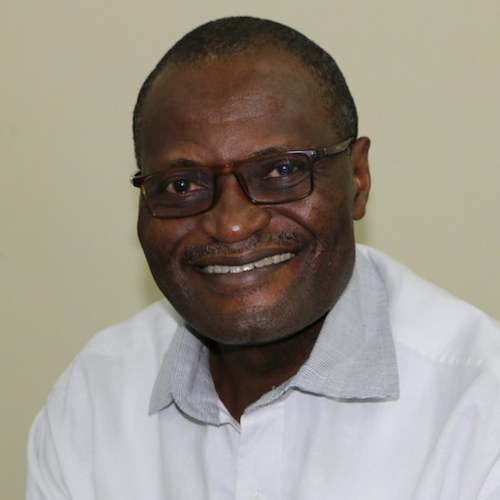
Current nationality : Cameroon
Current residence : Cameroon
Affiliation/Institution : University of Yaounde I; Fobang Institutes for Innovations in Science and Technologies (FINISTECH)
Wilfred Mbacham is a Titular Professor of Public Health Biotechnology. He obtained a Doctorat de Specialité in Molecular Parasitology from the University of Yaoundé I, Cameroon (1989), and a PhD in Tropical Public Health from Harvard, USA (1997). His research focuses on host and pathogen genomics and the interaction between communicable and non-communicable diseases at the University of Yaoundé I. He has served in leadership positions in many national and international programmes. He has developed a philosophical approach to Professionalizing Planning Actions in Science & Technology Education & University-based Research (Pro-P.A.S.T.E.U.R.) that integrates platforms for bioscience, physical sciences and research-uptake. He won the 2017 TWAS Regional Prizes in Public Understanding and Popularization of Science for sub-Saharan Africa. He was elected Chair of the Programme Management Committee of the International Atomic Energy Agency-AFRA programme of 41 African member states (2015–2021). He has supervised some 95 graduates and 25 PhD students with more than 180 publications. He founded the Fobang Institutes for Innovations in Science and Technology (FINISTECH), Cameroon.
Mekonnen Yalemtsehay, Professor of Cell and Human Physiology
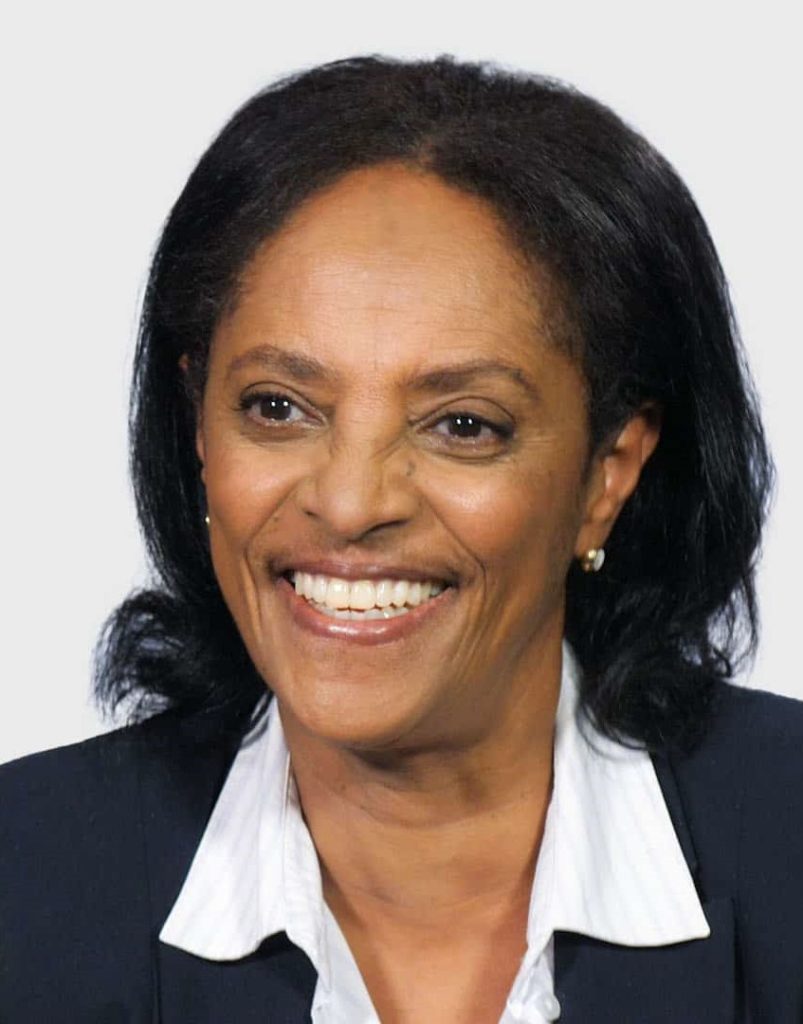
Current nationality : Ethiopia
Current residence : Ethiopia
Affiliation/Institution : Addis Ababa University
Mekonnen Yalemtsehayis is a professor of cell and human physiology in the department of biology at the College of natural and computational sciences of Addis Ababa University, Ethiopia. She has published extensively in different peer reviewed scientific journals on topics of respiratory physiology, medicinal plants and other related topics. She has advised many MSc and PhD students and she has also mentored young professionals, specially women, over the last three decades. She was involved in leadership positions and has initiated a number of national, continental and international research networks and collaborations. In 2013, she was able to establish with other colleagues the Society of Ethiopian Women in Science and Technology, to help empower and mentor women academicians and researchers in Ethiopia. In 2015, she received the African Union Kwame Nkrumah Regional Scientific Award for Women in Science. She was appointed as Ambassador Scientist by the Alexander von Humboldt Foundation of Germany as part of a worldwide network for excellence from 2016 to 2021. Currently she is the Principal Vice-President of the Ethiopian Academy of Sciences.
Daniel Ochieng Olago, Professor of Geology, Chairman of the Department of Earth and Climate Sciences
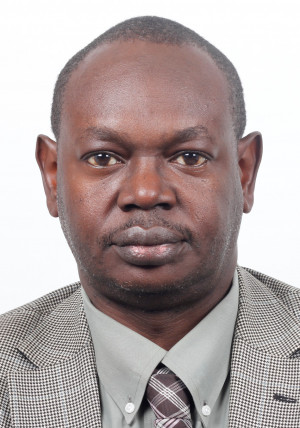
Current nationality : Kenya
Current residence : Kenya
Affiliation/Institution : University of Nairobi
Daniel Ochieng Olago is Associate Professor of Geology, Chairman of the Department of Earth and Climate Sciences, and Research Director, Institute for Climate Change and Adaptation, University of Nairobi. He has BSc and MSc degrees in Geology from the University of Nairobi and a DPhil degree in Physical Geography from the University of Oxford (Kenya Rhodes Scholar for 1990). His research interests are broadly in Quaternary and environmental geoscience, water resources and climate change. Olago has been involved in multi-disciplinary research, training and capacity building activities on global environmental change in sub-Saharan Africa for over 25 years. He has also contributed, as lead author, to the fourth and sixth Intergovernmental Panel on Climate Change Reports. He is a fellow of the Kenya National Academy of Sciences, the Geological Society of Kenya, and the African Academy of Sciences.
Francine Ntoumi, Molecula biologist, founder, President and Executive Director of the Congolese Foundation for Medical Research
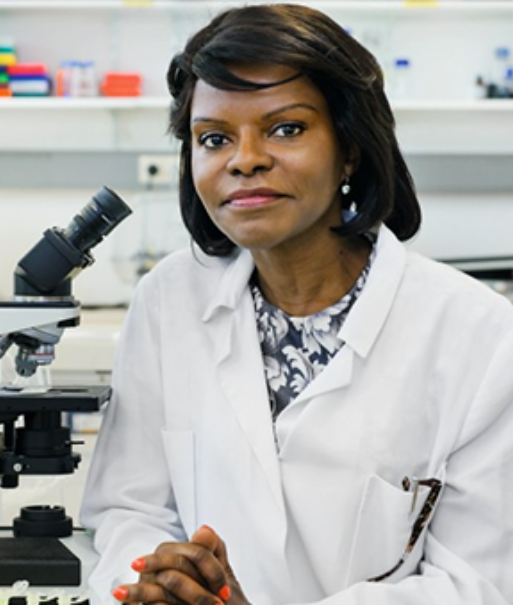
Current nationality : Republic of Congo
Current residence : Republic of Congo
Affiliation/Institution : Fondation Congolaise pour la Recherche Médicale, Brazzaville, Republic of Congo | Insitute of Tropical Medicine, University of Tübingen, Germany
Prof. Francine Ntoumi is a molecular biologist of Congolese nationality (Republic of Congo). She is the founder, President and Executive Director of the Congolese Foundation for Medical Research, Republic of Congo, Lecturer in Immunology at the University Marien Ngouabi and Associate Professor and Head of a research group at the Institute of Tropical Medicine of the University of Tübingen, Germany. She is a member of several international scientific committees and networks in Africa and Europe, and also contributes her expertise to the African Union as a member of the High Level Panel on Emerging Technologies. Her main area of research is malaria, and throughout her career she has trained African scientists of different nationalities in disciplines such as immunology and molecular epidemiology. Since January 2009, Professor Ntoumi has been involved in capacity building in biomedical research in Central Africa through the Central Africa Network on Clinical Research (CANTAM) and the pan-African PANDORA-ID-Net.
Francine Ntoumi studied in France, where she obtained a PhD in Science from the University Pierre et Marie Curie. She started her career in malaria research (immunology and molecular epidemiology) at the Institut Pasteur in Paris and continued it in different countries (Gabon, Germany and Congo). She also held positions in international organisations in the Netherlands and Tanzania, where she was the first African leader of the Multilateral Initiative on Malaria (MIM).
In Congo, in 2012, Francine Ntoumi launched the first Congolese research programme on Plasmodium infection during pregnancy, evaluating the impact of intermittent preventive treatment with sulfadoxine-pyrimethamine (SP) and conducting surveillance studies on the resistance of Plasmodium strains to antimalarial drugs.
In 2012, she was awarded the African Union Kwame Nkrumah Science Prize for Women, and laureate of the RICE Prize (Réseau International des Congolais de l’extérieur). She received the Georg Forster Prize in Germany, and the Christophe Mérieux Prize in France, in 2015 and 2016 respectively. In 2016, she received the gold medal for scientific research from the Head of State of the Republic of Congo.
Setati-Phakeng Mamokgethi, Vice-Chancellor, University of Cape Town
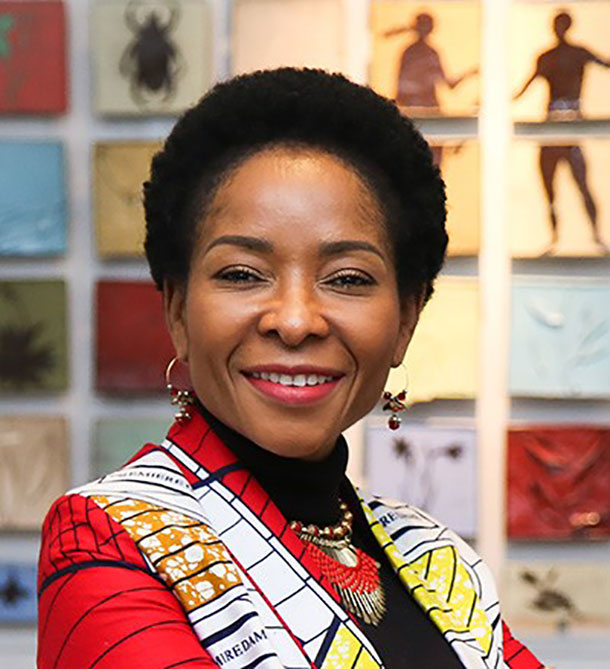
Current nationality : South Africa
Current residence : South Africa
Affiliation/Institution: University of Cape Town
Professor Mamokgethi Phakeng began her term of office as Vice-Chancellor of the University of Cape Town on 1 July 2018, where she had been serving as Deputy Vice-Chancellor for Research and Internationalisation since January 2017. Previous to this appointment she served as Vice Principal for Research and Innovation at the University of South Africa (Unisa) for five years, after serving three years as Executive Dean of the College of Science, Engineering and Technology at the same university.
Her academic career began at the University of the Witwatersrand, where she started as a research assistant in 1996 and left in December 2007 as an Associate Professor of Mathematics Education – and Founding Director of the award-winning Marang Centre for Mathematics and Science Education – to take up the position of Executive Dean of the College of Science, Engineering and Technology at Unisa in January 2008. She had a very successful tenure as Dean at Unisa and was promoted to serve as Vice Principal of a newly established portfolio of Research and Innovation on 1 July 2011. When her five-year term ended in 2016, she joined UCT.
Kgethi, as she is popularly known, obtained her first degree, majoring in pure mathematics, at the University of Bophuthatswana, now North-West University, in Mafikeng in 1987, obtaining a solid 74% for her final year pure mathematics module. She completed all her postgraduate studies, which ended with a PhD in Mathematics Education in 2002, at the University of the Witwatersrand, where she also served for five years as President of Convocation (2011–2016).
Professor Mamokgethi Phakeng is a highly regarded B1 National Research Foundation-rated scientist, with over 60 research papers and five edited volumes published. She has been invited to deliver over 40 keynote/plenary talks at international conferences, and has been invited as a visiting professor to universities around the world, including Australia, Botswana, Brazil, Canada, Denmark, Finland, Germany, India, Italy, Jamaica, Kenya, Lebanon, Lesotho, Mexico, Morocco, Mozambique, Namibia, New Zealand, Pakistan, Senegal, South Korea, Sweden, Switzerland, the UK and the USA.
Kgethi has won numerous awards for her research and community work, including an Hon DSc (Bristol) in July 2019, the Order of the Baobab (Silver) conferred on her by the President of South Africa in April 2016. In August 2014 CEO Magazine named her the most influential woman academic in Africa, and in August 2016 the Businesswomen’s Association of South Africa awarded her the prestigious Businesswoman of the Year Award in the education category.
Her commitment to academia and research extends beyond personal advancement. She was elected as a member of the Academy of Science of South Africa (ASSAf) in November 2007, an honorary member of the Golden Key International Honour Society in May 2009, and an honorary life member of the Association for Mathematics Education of South Africa (AMESA) in July 2009. In 2008 she was appointed to co-chair a study commissioned by the International Commission on Mathematical Instruction titled “Mathematics and language diversity”, which was published as an edited volume, Mathematics Education and Language Diversity, in 2016.
Professor Mamokgethi Phakeng is member of the board of the Oprah Winfrey Leadership Academy for Girls (OWLAG) and currently chairs the Human Resource Development Council Standing Committee on Mathematics and Science Education. She served as member of the board of the Council for Scientific and Industrial Research (CSIR) and chaired its Research Development and Innovation Committee from January 2015 until September 2017.
She was elected in 2011 as the first woman President of the Convocation of the University of the Witwatersrand and served for five years until 2016. She led the Association for Mathematics Education of South Africa (AMESA) as its first woman National President from 2002 to 2006, served as founding chairperson of the Board of the South African Mathematics Foundation (SAMF) from 2004 to 2006, and as secretary and member of the executive committee of the International Group for the Psychology of Mathematics Education (PME) from 2003 to 2007.
Soboyejo Winston Oluwole, Materials scientist
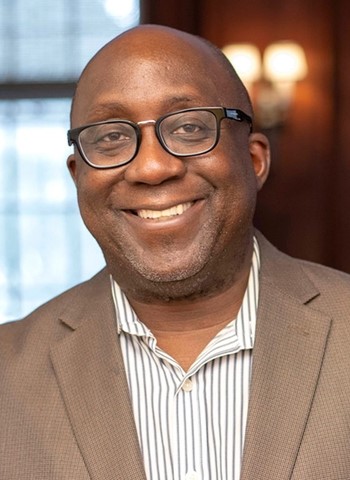
Current nationality : USA
Current residence : USA
Affiliation/Institution: Worcester Polytechnic Institute
Soboyejo Winston Oluwole is a materials scientist whose research focuses on the mechanical properties of materials. His work has explored the structure and properties of metals/alloys, intermetallics, ceramics, composites, porous materials, cancer cells/tissues, biomaterials, and materials for energy and the environment. He received his BSc in mechanical engineering from King’s College London in 1985, and a PhD in materials science from Cambridge University in 1988. He worked as a Research Scientist at the McDonnell Douglas Research Labs, USA (1988–1992). Since then, he has been a faculty member at The Ohio State University, MIT, Princeton, African University of Technology (AUST) and Worcester Polytechnic (WPI). Soboyejo served as President and Provost of AUST (2012–14). He then returned to Princeton (2014–16), before moving to WPI as the Bernard M. Gordon Dean of Engineering (2016–18). He was Senior Vice President and Provost at WPI from September 2018 to May 2022, when he was appointed as Interim President of WPI. He is the recipient of National Young Investigator Awards by National Science Foundation/Office of Naval Research. He is a Fellow of the US National Academy of Engineering.
Sokona Youba, Vice-Chair of the Intergovernmental Panel on Climate Change
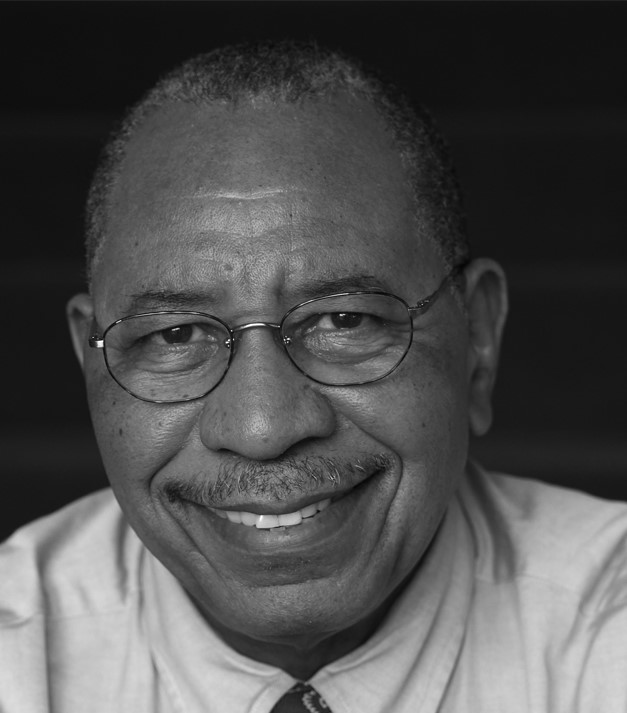
Current nationality : Mali
Current residence : Mali
Affiliation/Institution: Intergovernmental Panel on Climate Change
Sokona Youba (PhD, 1981, Ecole nationale supérieure des mines de Paris, Université Pierre et Marie Curie – Paris VI, France), with over 40 years of experience addressing energy, environment and sustainable development in Africa, has been at the heart of numerous national and continental initiatives. He is currently a Vice-Chair of the Intergovernmental Panel on Climate Change (IPCC) after serving as Co-Chair of IPCC Working Group III, following being a Lead Author since 1990. He has a proven track record of organizational leadership and management, for example as Inaugural Coordinator of the African Climate Policy Centre and as Executive Secretary of the Sahara and the Sahel Observatory. He is affiliated with numerous boards and organizations, including, as Honorary Professor at the University College London, member of the African Academy of Sciences, and of the Science Advisory Committee of the International Institute for Applied System Analysis. In short, Sokona is a global figure, with deep technical knowledge, extensive policy experience and an unreserved personal commitment to African led development.
